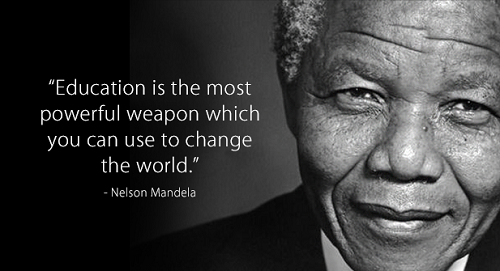South Africa has been blessed with many a writer that shows an extraordinary talent for putting into words the various events, stories and historical happenings that make our country so unique.
Let’s take a look at the top 5 writers South Africa has produced so far.
André P. Brink is a well-known and established white writer whose best works are set in the Apartheids era. Brink’s work discusses sexual and religious themes with such openness that his novel, Kennis van die and was the first Afrikaans book that was banned under Apartheid.
After this, Brink started writing in English and this combined with his Afrikaans books being translated due to high demand, has enabled him to reach a massive international audience. Although he mostly wrote novels that addressed the problems experienced in the Apartheid era, his more recent works focuses on the new range issues posed by the different life of a democratic South Africa.
Lewis Nkosi is not as well-known, having written just three novels and two plays before his death in 2010. However his analytical and allegorical writing style has seen to him being compared to the likes of Albert Camus. As a young man, Nkosi wrote for Drum Magazine and used his confidence and pride in his race as a tool for social activism.

In 1986 his debut novel Mating Birds was released.
It takes a very ambiguous look at rape, love and seduction and the thin lines separating these concepts. Nkosi was a multifaceted personality and not only attempted writing plays and novels, but his works stretch from attempting every literary genre to literary criticism, poetry and drama.
Njabulo Ndebele is an academic and author who won the Noma Award – Africa’s most prestigious literary accolade. With mostly critical writing, his topics range from exploring ways forward for the damaged post-apartheid nation in search of freedom of expression through to stories of Cape Town’s poverty stricken townships’ inhabitants and their lives.
He sees his positive reading of post-apartheid pretence of reconciliation not as hypocrisy, but as a natural coping mechanism, a way of buying time. Ndebele has changed his focus in later years and is the former Vice-Chancellor and Principal of the University of Cape Town and was inaugurated as the Chancellor of the University of Johannesburg in 2012
Bessie Head was born in Pietermaritzburg in 1937 and passed away in 1986. The significance and influence of her work and life has been abruptly brought into focus since her death. Best known for three novels – When Rain Clouds Gather, Maru and A Question of Power, her fiction is preoccupied with the typical issues, struggles and questions, which became a unique signature narrative style.
Head grew up in the midst of serious racial conflict as her father was a wealthy white South African and her mother a black servant. However, her work does
not reflect the expected and sometimes obvious topics written about by South African writers, but she rather portrays everyday rural African life in a simplistic and honest manner.
The last writer we will discuss today is John M. Coetzee. Having won the Nobel Prize in 2003, Coetzee is the most internationally acclaimed writer produced by South Africa. Coetzee tackles politically charged issues including race and class and his works are often a reflection of a surreal, disjointed terrain in which traumas of the country and characters are magnified and symbolic.
In Waiting for the Barbarians, he goes beyond allegories, imagining an apolitical, non-specific and timeless conceptual space in which he explores issues of ownership, violence and the nature of civilisation. Producing works of a divergent nature, Coetzee is known to often be highly experimental in his approach.
As you can see, our country has produced many a writer from various cultures, races and background. Make sure you don’t miss out on the talent South Africa has to offer and get reading today!
Written by Marleen Theunissen
Creative writer at ATKA SA



